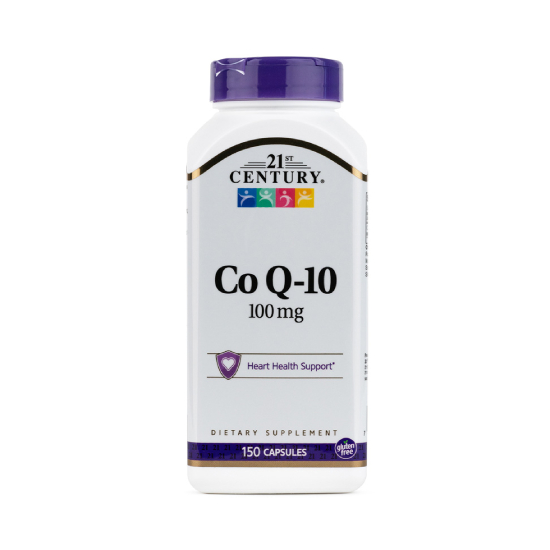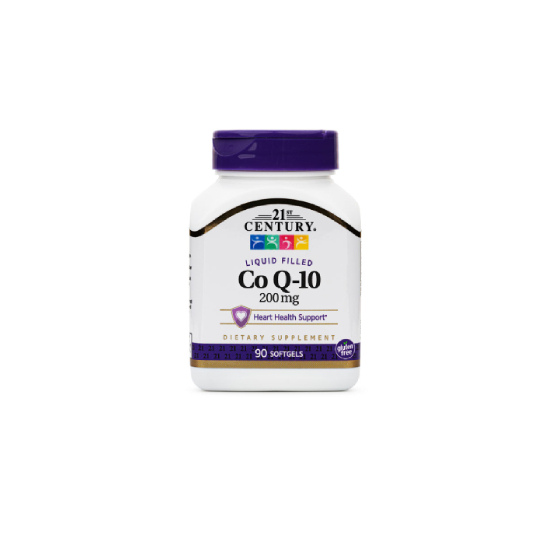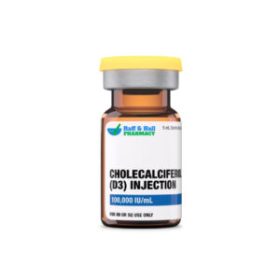This product is available solely through our 503A Compounding Pharmacy, ensuring personalized care and precision in every order. Please note that a valid prescription is required for purchase. If you do not have an account, please contact us.
Coenzyme Q10 Capsule (Each) †
† commercial product
An endogenously produced vitamin-like substance called coenzyme Q10 (CoQ10), also known as ubiquinone and ubidecarenone, engages in several cellular processes. A fatsoluble antioxidant, it belongs to the quinone family with a structural similarity to vitamin K. Coenzyme Q10, which occurs naturally in foods particularly meat and seafood, was first extracted from bovine hearts at the University of Wisconsin in 1957. Levels of CoQ10 naturally decrease with age. Patients with heart failure, cardiomyopathies, cancer, and some neurological disorders (Parkinson’s disease among others) have additionally shown intrinsic deficits of CoQ10. Use of coenzyme Q10 has been recommended for several illnesses; it is possible that a current state of Observation of any clinical advantage from supplements might need CoQ10 deficiency. CoQ10 has been investigated as a cardiopreparatory adjuvant therapy and as an athletic performance booster. Diseases, acute myocardial infarction, adjuvant therapy for metastatic breast cancer, prophylactic doxorubicin-induced cardiomyopathy, familial cerebellar ataxia, periodontal disease, muscular dystrophy, Parkinson’s disease, and mitochondrial diseases. Most of these applications rely on conjectural data or small, unmanaged clinical trials. Although the controlled data indicate CoQ10 does not, no firm judgment on its effectiveness in these situations can be reached. Provide heart failure patients with benefits. Though early studies revealed little evidence of efficacy, controlled trials will be required to back clinical effectiveness of CoQ10 for mitochondrial diseases.
A fatsoluble, vitaminlike compound that acts as a carrier for electrontransfer inside the inner mitochondrial membrane, Coenzyme Q10, Ubiquinone (CoQ10) is Moreover, it is absolutely necessary for ATP synthesis (oxidative phosphorylation). Antioxidant characteristics, namely free radical scavenging, have been discovered as well. CoQ10 might have modest inotropic effect as well as affect prostacyclin metabolism, hence prostaglandins. CoQ10 is most abundant in the heart, liver, kidneys, and pancreas. Levels of CoQ10 are believed to be low in a number of diseases. among those are CHF, hypertension, periodontal disease, some muscular disorders, Parkinson’s disease, migraine migraines, and AIDS.
Antioxidant effects: CoQ10’s involvement in the treatment of mitochondrial diseases and CHF is thought to be connected to its antioxidant qualities. Impaired oxidative metabolism results in elevated serum lactate and lactate/pyruvate ratio in patients with mitochondrial function abnormalities. CoQ10 supplementation lowers these levels, therefore enhancing exercise tolerance and function. Levels of CoQ10 are frequently reduced in CHF patients. CoQ10’s mode of action in CHF therapy could include oxidative damage avoidance as well as supplementation of these levels. In CHF, CoQ10 seems to provide the most advantage in people with the most severe CoQ10 deficit.
CoQ10 could help to create ATP by stopping the depletion of metabolites needed for ATP resynthesis. More ATP output could have antianginal properties. CoQ10 can also boost mitochondrial oxidative phosphorylation in migraine sufferers, which might be compromised in some patients.
Direct membrane stabilizing effects of CoQ10 come from interactions between phospholipid and protein. CoQ10’s capacity to guard cardiac tissue throughout ischemic reperfusion may result in part from its antioxidant and membrane stabilizing qualities.
The safety and effectiveness of Coenzyme Q10, Ubiquinone (CoQ10) in pregnancy have not yet been confirmed. Treatment with CoQ10 from 20 weeks gestation until term reduced the risk of preeclampsia in women at risk. Given the lack of sufficient, well-controlled research, most women should abstain from utilizing it during pregnancy until additional data become available.
There have been no suitable and well-controlled research on the safe use of CoQ10 supplements in nursing mothers. It is clear, though, that early breast milk (colostrum) contains CoQ10 obtained from dietary sources as a natural constituent; concentrations in maternal plasma and milk appear to diminish over time; levels are not as concentrated in mature milk. Until more information is known, it might be wise to refrain from using extra materials while breastfeeding. Think about the advantages of breastfeeding, the danger of possible newborn medicine exposure, and the risk of an untreated or partially treated illness. Health professionals are urged to notify the FDA of any bad reaction experienced by a nursing infant in relation to a maternally consumed medicine.
The safety and efficacy of Coenzyme Q10, Ubiquinone (CoQ10) in pregnancy have not been proved. In pregnant Treatment of women at risk for preeclampsia resulted in reduced preeclampsia risk when CoQ10 was given from 20 weeks gestation until term. Until more data are accessible, prudence in most women may be to abstain from its use during pregnancy since there are no good, well-controlled studies.
Coenzyme Q10 and Ubiquinone’s safety and effectiveness in breastfeeding have not been proven. On the safe use of CoQ10 supplements in breastfeeding women, there have been no appropriate and properly controlled research. CoQ10, sourced from dietary sources, is a natural component of early breast milk (colostrum), and maternal plasma and milk levels are known to seems to drop with time; levels are not as concentrated in mature milk. Until more information becomes known, wise is avoiding supplements during breastfeeding. Think about the advantages of breastfeeding, the possibility of infant drug exposure, and the danger of an untreated or poorly treated illness. Healthcare professionals are advised to report any bad effect an breastfeeding baby suffers linked to a maternally consumed medication to the FDA.
Store this medication at 68°F to 77°F (20°C to 25°C) and away from heat, moisture and light. Keep all medicine out of the reach of children. Throw away any unused medicine after the beyond use date. Do not flush unused medications or pour down a sink or drain.
- Matthews PM, Ford B, Dandurand RJ, et al. Coenzyme Q10 with multiple vitamins is generally ineffective in treatment of mitochondrial disease. Neurology 1993;43:884—90.
- Greenberg S, Frishman WH. Co-enzyme Q10: a new drug for cardiovascular disease. J Clin Pharmacol 1990;30:596-608.
- Teran E, Hernandez I, Nieto B, et al. Coenzyme Q10 supplementation during pregnancy reduces the risk of pre-eclampsia. Int J Gynaecol Obstet 2009;105:43-5.
- Niklowitz P, Menke T, Giffei J, Andler W. Coenzyme Q10 in maternal plasma and milk throughout early lactation. Biofactors. 2005; 25: 67-72.
- Natural Medicines Comprehensive Database. Jellin JM, ed. Stockton; 1995-2010.






